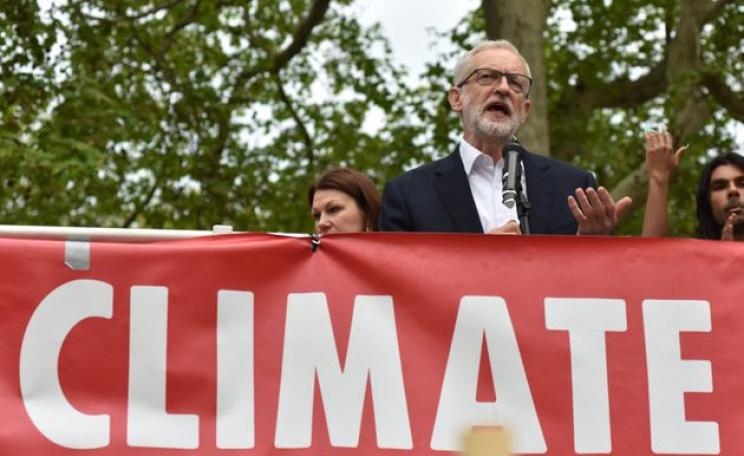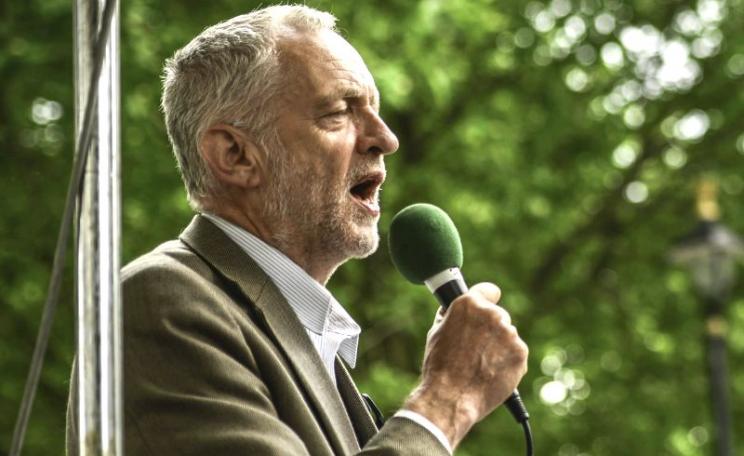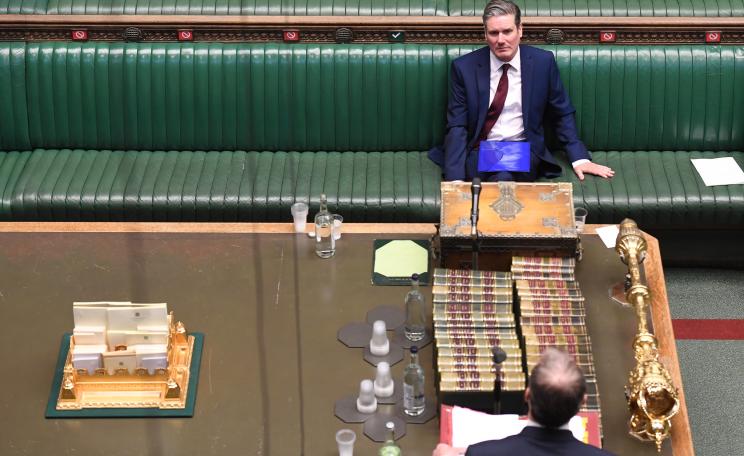-
Labour’s left-wing grassroots are finally on the front foot. Momentum are now backing party conference motions that would see Labour adopt a radical Green New Deal as official party policy.
Jeremy Corbyn’s supporters are spearheading a radical new policy agenda to reshape Britain from the bottom up.
The history of Corbynism so far has been of defending the left’s control of the party. In 2015, the journey began with Corbyn’s election as party leader to the surprise of the political establishment. In 2016, his supporters organised to fend off the 'chicken coup' ending with Owen Smith’s failed leadership challenge.
Radical platforms
In 2017, Momentum members helped cement Corbyn’s authority with a defiant general election result overturning Theresa May’s parliamentary majority. The political tide has turned within Labour, but much of the party’s plans for government are yet to match the ambitions that drove Corbyn’s rise to power.
In policy terms, members remain ahead of the leadership’s stated positions on key areas such as climate, migration, work, ownership and foreign policy. We can see this in the Labour for a Green New groups sprouting across the country, demonstrating the enthusiasm for radical policy platforms.
The motion that Labour for a Green New Deal groups will put to Labour Party conference in September crucially places the necessary target of a zero-carbon society by 2030 in the context of a socialist, internationalist platform to transform the whole economy. The motion is clear that without both, we’ll achieve neither.
Members’ ambition is not just for Labour to adopt the Green New Deal as framing. The principles of the Green New Deal must flow deeply through Labour’s entire manifesto and vision for transforming society. Beyond merely rolling back Tory austerity and introducing limited services, the climate crisis commands a total rewiring of the economy. And it’s given us a hard deadline of 2030.
Privatisation and the market have failed to transition our economy away from fossil fuels because profit got in the way. That’s why we need a green industrial revolution expanding public, democratic ownership across the whole economy.
Labour for a Green New Deal’s motion calls for large-scale investment and regulation to accelerate the transition to renewables while dismantling a rigged economy.
Climate justice
Too often the cruel threat of job losses has been made to workers demanding transition. That’s why Labour for a Green New Deal’s motion calls for a just transition to well-paid, unionised, green jobs available for all.
Green jobs are not just engineers building wind farms or insulating homes, vital though they are. Green jobs are any zero-carbon job which contributes to delivering universal basic services providing for everybody’s needs: teachers, nurses, social and care workers, bus drivers, farmers and chefs.
There can also be no climate justice in one country alone. Any effective response to the climate crisis must be global in scope.
We need an internationalist Green New Deal. That means the UK meeting its responsibilities from historic emissions by transferring finance, skills and capacity to the Global South to support a global just transition.
It means ending neocolonial plunder of the metals and minerals needed to green our energy at home while leaving the rest of the world for dead.
Growing confidence
Over recent weeks there have been Green New Deal events in Sheffield, Bristol, London, Oxford, Scarborough and Newcastle. At each one, there has been palpable energy among Labour members for a transformative program binding radical climate and economic justice together.
Decades of austerity-environmentalism has turned people away from questions of climate. The Green New Deal’s promise of revitalising left-behind communities is getting people excited. All of this is beyond Labour’s current position, but it is the logical conclusion of the politics behind the party’s existing plans for a more limited ‘green industrial revolution’.
Corbyn’s leadership has above all else created the political space in Labour for these meaningful conversations over policy and strategy. Corbyn, John McDonnell and Rebecca Long-Bailey regularly call for pressure from below to push them further, particularly on climate.
Luckily, through vehicles like Labour for a Green New Deal, members are growing in confidence to make the most of this space. They are a necessary counter-weight to established, and often reactionary, interests who are already confident exerting their influence over Labour’s leaders.
Last year saw anti-Brexit campaigners maximise the potential of Party Conference to shift the party’s position on the possibility of a second referendum. This year, grassroots campaigns like Labour for a Green New Deal, with the backing of Momentum, will set the agenda at Conference and beyond.
After years of defending basic policy positions, 2019 is the year of Corbynism 2.0 – a renaissance of ideas, ambition and strategy bursting up from the grassroots. A radical Green New Deal which responds to recent declarations of climate emergency will be its centrepiece.
This Author
Chris Saltmarsh is co-director of climate change campaigns at People & Planet, and co-founder of Labour for a Green New Deal. He tweets at @chris_saltmarsh. This story was first published on openDemocracy.
Image: Ben Birchall/PA Wire/PA Images.







